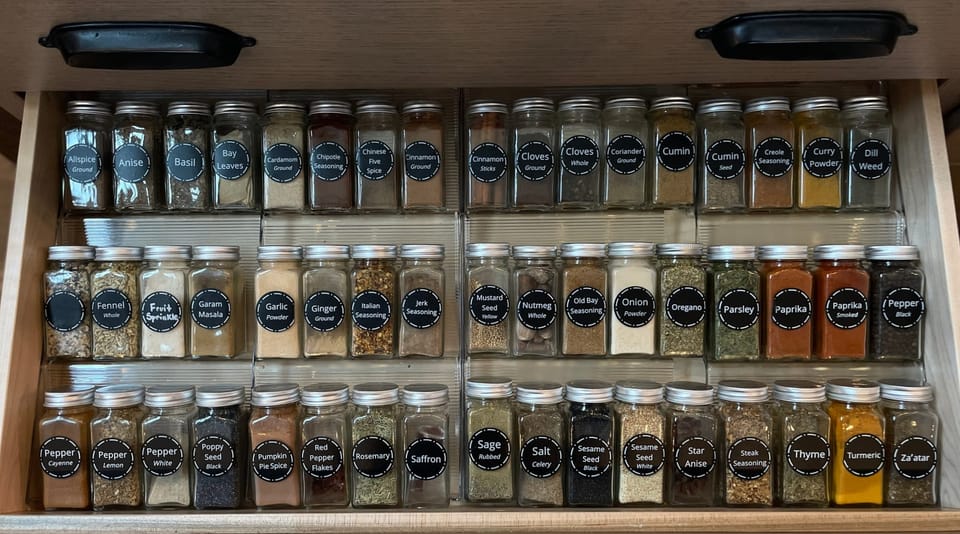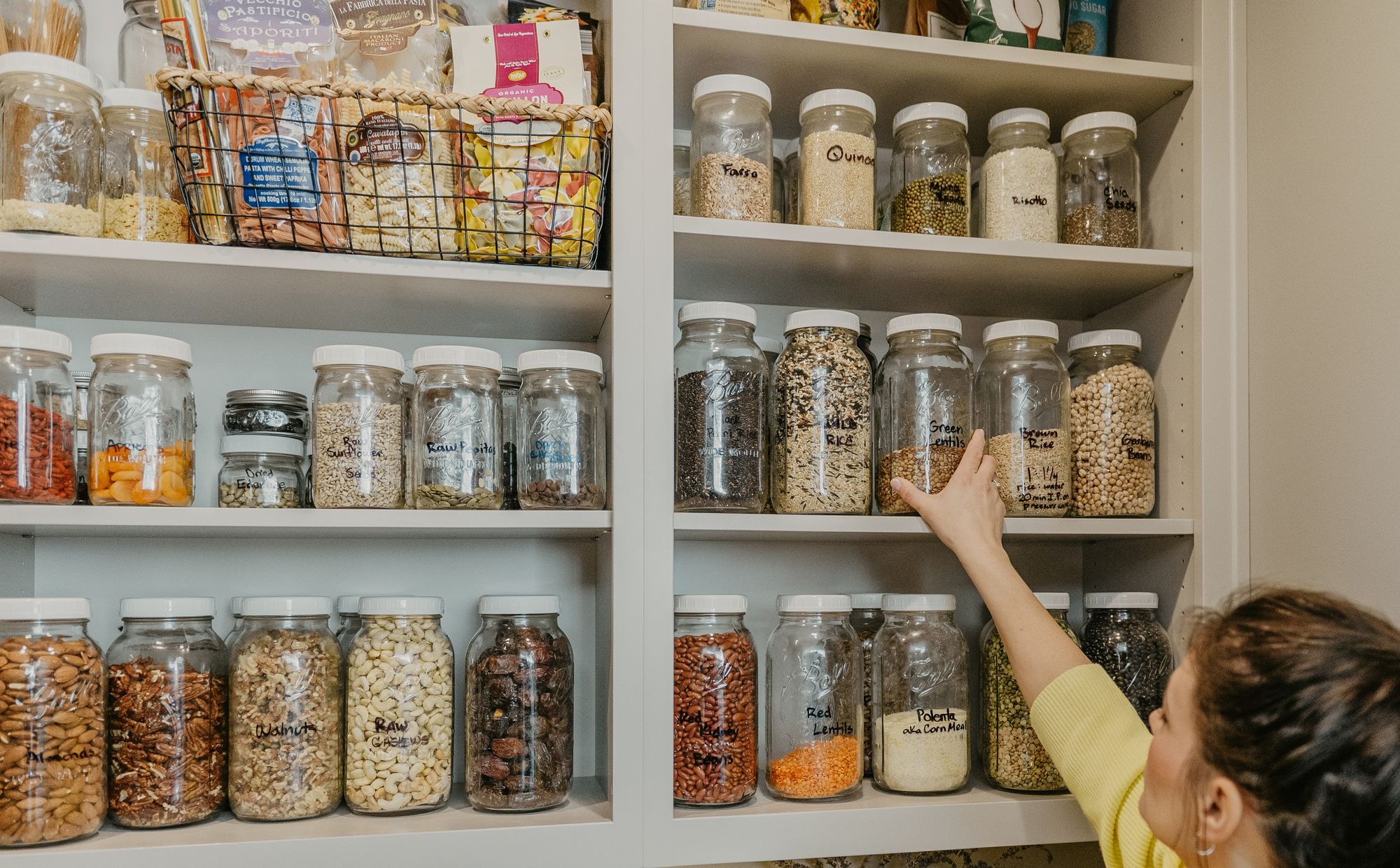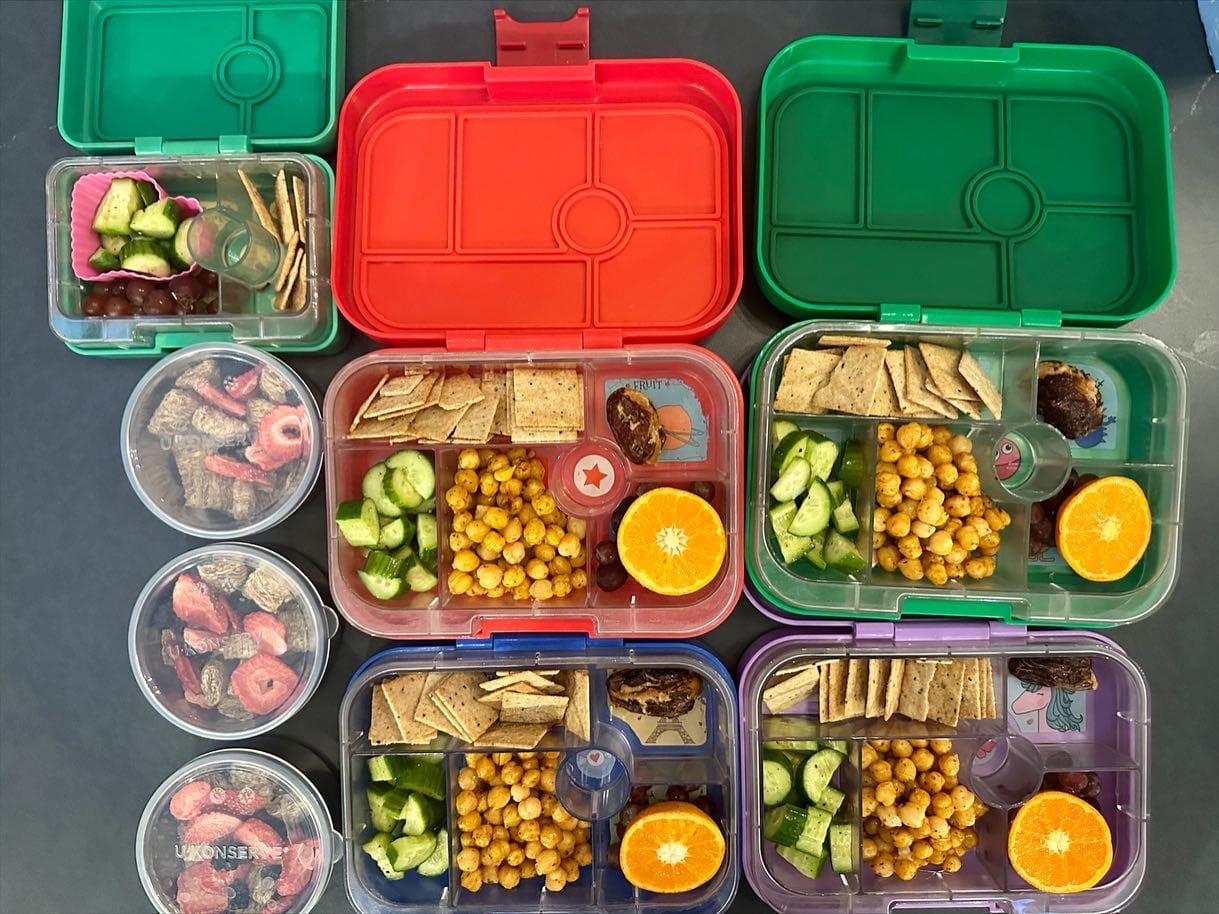Stocking a Plant-Based Kitchen


Ok, so you're ready to start incorporating more plant-based foods into your family's diet. That's wonderful!
You're probably wondering where to start.
First let me say a few things.
I'm proud of any steps you're taking to improve your health and wellbeing! There is no judgement here and please let me know if I can do anything differently, if there's something you are curious about or if you have any questions or concerns. Message me, email or find me at the grocery store if you're a local.
Also, there are MANY ways to go about your journey of eating more plant-based, plant-forward, plant-predominant, or 100% vegan. Whatever your final destination is, that's great. I'm here for it and happy to help in any way I can.
Plant-Based/Plant-Predominant/Plant-Forward means: eating mostly plants, usually for health-purposes, not necessarily "vegan" but its when a person is aiming for mostly plants in their diet. They may still consume some animal products, but "most" of the diet is plants.
Vegan means: consuming only plants (no animal products). Also usually embracing a "vegan lifestyle", meaning that they aim to eliminate any contribution to the suffering/harm or killing of animals. (no honey, leather, wool, products tested on animals, etc).
There are as many variations of dietary choices as there are people, as we all make choices regarding our diet, lifestyle and purchases multiple times a day.
The label isn't necessarily important, and in fact you may feel like there's not a term that best describes you/your diet and thats ok. You can figure out what works best for you and how you want to describe your eating pattern to others as it becomes necessary. (Like when Grandma invites you over for dinner or you're asking about a menu item at a restaurant.)
Sometimes choosing where to eat with friends based on your preferences or bringing a dish to an event is the best way to avoid the discussion if it feels uncomfortable for you. You could say, "thanks for the invitation, we'll bring a dish to pass!", or "let's try the new place downtown, I hear they have a diverse menu", for example.
My family chooses to eat a plant-based diet and aims for a vegan lifestyle. We're not 100%/perfect, and I don't expect anyone to be. Our family's goal may vary widely from yours and that's ok, too!
In pediatrics, we always say that the children aren't "in charge" of the foods that are brought into the home/served to them. Rather, the adults in their lives are responsible for that. Because of this, we can work to select options that work for our family and fulfill our nutrient needs, and the "kids don't have to eat kid food", at least in our home. However, we can only truly have an influence on the foods that come into our homes and pantries, and the discussion about what goes on outside of the home (at school, friends' or family's homes, work, practice, etc) will have to be something the family works through together.
In Lifestyle Medicine, we're aiming to feed ourselves and our children/the children we care for- a plant-predominant diet. Ideally a whole-foods, plant-based diet. If you're also on that journey, and wanting to add more plant-based options to your home... let's think about what you may already have on hand.
You're probably already preparing and eating many plant-based foods at home right now. Maybe without even knowing it!
Plant-based foods include: all fruits and vegetables, beans/lentils/legumes of all kinds, whole grains (like rice/oats/wheat etc), nuts/seeds and spices.
Does your family already enjoy eating some of these foods? I'm sure they do! Please continue serving them! It is great to keep some familiar and well-loved plant-based foods on the menu while we add newer items.
We can now build our pantry/kitchen supply to include OTHER plant-based foods.
But wait, what foods are we going to need to "reduce"? (or maybe stop eating all together)?
Foods that are reduced or eliminated in a plant-based diet include any animal products. Some examples are: meat (beef, pork, lamb, chicken, turkey, venison, fish, shellfish, clams, shrimp, oysters, etc), meat products (bacon, deli meat, sausages, pepperoni, bacon bits, lard, organ meats), dairy products (cow/goat, etc- including any milk, butter, yogurt, kefir, and of course CHEESE), and all eggs.

For children, there are some nuances that are necessary to discuss.
Kids need fat to feed their brains, especially during the rapid growth in their first few years. As a baby, this is fulfilled by breastmilk or formula. Some families choose to switch to soy-based formula if they're already feeding their baby formula, while some others keep their dairy-based formula and stop dairy when the baby is weaned from bottles (maybe around 12-18 months old). Also, all babies need high-calorie, nutrient rich foods to sustain their calorie and vitamin/mineral intake, and this is usually maintained by some type of milk until children are at least 2 years old. There are many resources regarding types of milks, and I'll post one here. Please ask your pediatrician or other primary care practitioner if you have any concerns regarding which milk is best for your baby/child.
Personally, over the last decade of raising children, we've done things differently for all our children! After my babies were done breastfeeding, they were either transitioned to dairy formula (the baby who nursed only 9 months), whole-fat cow's milk (baby who nursed 13 months and we were not yet plant-based), or soy milk (my last 3, all nursed at least 13-15 months and we were plant-based)... So if you have a question about transitioning your baby/toddler, I can probably offer some advice.
I generally recommend that newborns are breastfed as long as possible (1-2 years is ideal per CDC/WHO), or fed an organic soy formula, and then transitioned to unsweetened soy milk after 1 years old. Also, milk should remain a staple drink in the child's diet at least until 2 years old.

Some families choose to phase-out animal products slowly. You could start by stopping purchasing of any of these products, and using up whatever you have in the fridge/freezer/pantry.
Others choose to donate any unused items, like to a neighbor/friend, food pantry, shelter, soup kitchen, their workplace or school, etc.
Once you have some room to add new foods into your space, consider your family's prefences.
What are your favorite foods? Meals? Snacks? Can any of these be made into plant-based options? For example, can you eliminate dairy in your morning cereal and coffee and switch to unsweetened soy milk? How about trying a plant-based alternative like lentils in your next pasta dish? Will your family be willing to try black bean burgers for burger night?
Also, look for inspiration.
See what you can find on your favorite cooking channel, social media pages, or in your current cookbooks and recipe box.
Ask your family and friends to share their favorite veggie dishes.
Remember the goal is to transition to a MORE plant-based diet. This may take time, but I encourage not to give up or let up. Set a goal and try to stick with it. Maybe you start with Meatless Mondays or cutting out meat/dairy at breakfast, etc. Even before you have that habit established, plan on when you will re-evaluate. In 2-4 weeks, make another change. Keep moving toward that goal.
Here are some pages that may be helpful for you to reference when choosing what to stock in your kitchen.
Below is an informative page from our Culinary Medicine Team at Corewell Health (previously called Spectrum Health), where I teach culinary medicine to pediatric and family practice residents. You may wish to print it and keep it on your cupboard to reference next time you go grocery shopping or to the bulk food store.

Below is another great page to print and keep on the fridge/cabinet to remind you of the recommended servings for the different food categories for plant-based kids, from Dr. Jackie Busse. Her page is linked, just click on the image. Dr. Busse a plant-based pediatrician rockstar!
In general, I try hard not to stress about quantity of servings for each category, as long as I know there are getting a good variety and that the "plate" has something from each category if possible. Maybe after you take a look you can decide how you want to move forward... but remember that feeding your family should be FUN, simple, and DELICIOUS. Adding stress here isn't the point. The point is reducing risk for chronic illnesses while feeding our kids in a way that makes them love foods that fuel their growing bodies.

For our family, I thought that transitioning slowly may hinder our ability to really take 0ur new goal seriously. I thought maybe if we cut out meat but kept eating cheese, we could easily slip back into eating meat, for example. So in September 2017, we went FULL ON plant-based in our home after only a very short transition period. Two weeks in and we were forever changed, loving our newly found energy, improved sleep, mental clarity, freedom from stomach bloating, and endless new recipes and foods to try! When we are outside the home, even now- 5 years after transitioning, some of the children may choose to eat something that contains animal products. We always discuss their choice beforehand and it usually comes up even afterward (they know to ask what foods are plant-based/vegan when we're not at home). We allow them to make their own choices guided by our family values, but we talk about how they may feel physically or what may have been involved in the production of that food. ("last time you had milk it hurt your tummy, but you can choose to have a piece of your Aunt's chocolate cake", is a common example). I always discuss this simply and briefly with the children's teachers at school, as well. "Its ok if they want a snack that another student bring in for a birthday treat, but here are some backups to keep in your classroom in case my child is asking for a plant-based option". The teachers have always been very gracious and happy to have extra snacks available.
Whatever path your family takes, I have confidence that you can find delicious, affordable, nutritious plant-based foods that will honor your tastes, preferences, and heritage.
I will share my favorite plant-based cookbooks, soon.
Be well!